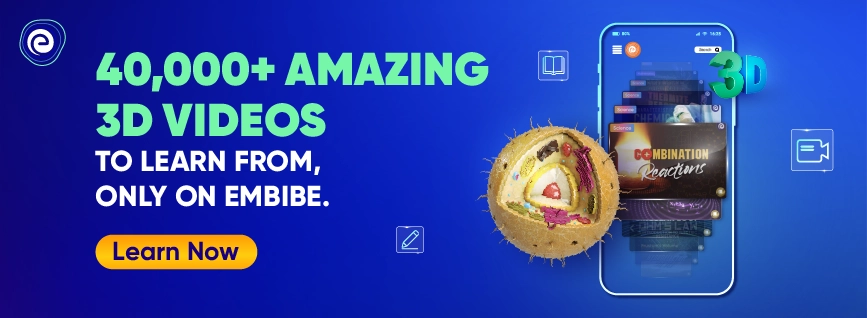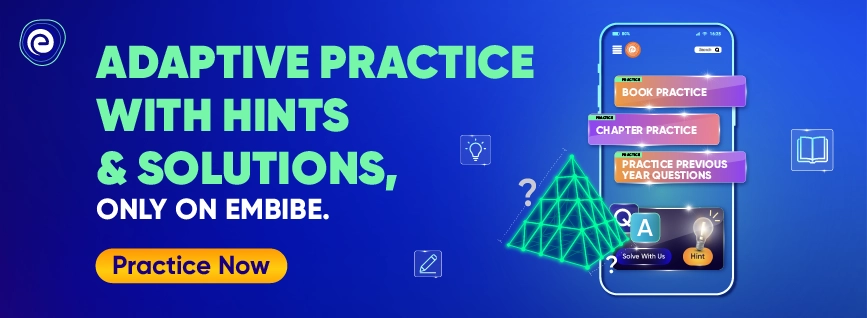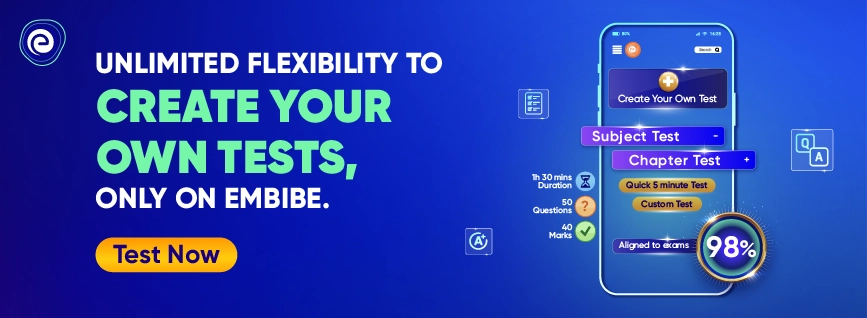- Written by nikhil
- Last Modified on 18-11-2024
Himachal Pradesh Board Class 8 Exam 2025
The Himachal Pradesh Board of School Education (HPBoSE) was established in 1969. The HPBoSE conducts Class 10 and Class 12 exams and prescribes the Class 8 curriculum. The Board prescribes textbooks for Class 8 and is responsible for any updates or revisions of the syllabus. The Class 8 exam is conducted at the school level. The school authorities are responsible for the smooth conduction of the exams.
For Class 8 HPBoSE, the respective schools have the right to design the question papers while adhering to the board’s norms and guidelines. It is a goal-oriented stage in which students begin to understand the depth of many topics. Continue reading this article to find all the information related to HPBoSE Class 8 exam, like the syllabus, blueprint, preparation tips and many more.
Himachal Pradesh Board Class 8 Exam Summary 2025
The HPBOSE Class 8 exam is conducted by the respective schools, while following the Board-prescribed curriculum. It is at this stage that students are introduced to more complex topics and learn new things that are useful for higher classes. Before going any further, let us look at the exam summary of HP Board Class 8.
| Particulars |
Details |
| Name of the Board |
Himachal Pradesh Board of School Education |
| Abbreviated as |
HPBoSE |
| Establishment Year |
1969 |
| Headquartered at |
Dharamshala |
| Frequency of Exam |
Annual |
| Mode of Exam |
Offline |
| Total Marks |
100 |
Himachal Pradesh Board Official Website
https://hpbose.org/Home.aspx
Himachal Pradesh Board Class 8 Exam Syllabus 2025
The HPBoSE devises the Class 8 syllabus. The Class 8 HPBoSE syllabus covers all the important topics in Science, Social Science, and Mathematics. Apart from these subjects, the syllabus includes the first and second (regional) languages the student chooses.
Furthermore, students are required to study coding as an elective subject starting next year. Each subject’s topics are covered engagingly so that students can learn them without being bored by the same. The syllabus for class 8 HPBoSE subject is given below.
HP Board Class 8 Maths Syllabus
To be efficient in Maths, students must be clear with the fundamentals. Knowing the syllabus can help them decide how much time to give to each chapter. Students are advised to prepare for their based on the syllabus as it will give them an idea on which chapters to prepare. Below, we have provided HP board Class 8 Maths syllabus:
| Chapter No. |
Chapter Name |
| Chapter 1 |
Rational Numbers |
| Chapter 2 |
Linear equation in one variable |
| Chapter 3 |
Understanding Quadrilaterals |
| Chapter 4 |
Practical Geometry |
| Chapter 5 |
Data Handling |
| Chapter 6 |
Squares and Square roots |
| Chapter 7 |
Cube and Cube roots |
| Chapter 8 |
Comparing Quantities |
| Chapter 9 |
Algebraic expression and Identities |
| Chapter 10 |
Visualising Solid Shapes |
| Chapter 11 |
Mensuration |
| Chapter 12 |
Exponents and Powers |
| Chapter 13 |
Direct and Inverse Proportions |
| Chapter 14 |
Factorization |
| Chapter 15 |
Introduction to Graphs |
| Chapter 16 |
Playing with Numbers |
HP Board Class 8 Science Syllabus
Science is one of the main subjects that need a thorough understanding. While preparing for HP board Class 8 Science exam, students must refer to the syllabus as it will help them have a well-planned preparation. Based on the syllabus, students can divide their time among all the chapters. Below we have provided HP Board Class 8 Science syllabus for your reference:
| Chapter No. |
Chapter Names |
| Chapter 1 |
Crop Production |
| Chapter 2 |
Micro-organisms |
| Chapter 3 |
Synthetic Fibres and Plastics |
| Chapter 4 |
Materials: Metals and Non-metals |
| Chapter 5 |
Coal and Petroleum |
| Chapter 6 |
Combustion and Flames |
| Chapter 7 |
Conservation Of Plants and Animals |
| Chapter 8 |
Cell Structure and Functions |
| Chapter 9 |
Reproduction in Animals |
| Chapter 10 |
Reaching the age of Adolescence |
| Chapter 11 |
Force and Pressure |
| Chapter 12 |
Friction |
| Chapter 13 |
Sound |
| Chapter 14 |
Chemical Effects of Electric Current |
| Chapter 15 |
Some Natural Phenomena |
| Chapter 16 |
Light |
| Chapter 17 |
Stars and Solar System |
| Chapter 18 |
Pollution of Air and Water |
HP Board Class 8 Social Science Syllabus
The syllabus for Social Science has been designed in such a way that it gives students knowledge about human society and social relationships. To prepare for this exam, it is essential for students to refer to the syllabus. This will help them have a proper hassle-study session. The table below provides the HPBoSE syllabus for Class 8 Social Science:
| Chapter No. |
History |
Geography |
Civics |
| 1 |
How, When and Where |
Resources |
The Indian Constitution |
| 2 |
From Trade to Territory: The Company Establishes Power |
Land, Soil, Water, Natural Vegetation and Wildlife Resources |
Understanding Secularism |
| 3 |
Ruling the countryside |
Mineral and Power Resources |
Why do we need a Parliament |
| 4 |
Tribals, Dikus and the Vision of a Golden Age |
Agriculture |
Understanding Laws |
| 5 |
When People Rebel |
Industries |
Judiciary |
| 6 |
Colonialism and the City |
Human Resources |
Understanding our Criminal Justice System |
| 7 |
Weavers, Iron Smelters and Factory Owners |
|
Understanding Marginalisation |
| 8 |
Civilising the “Native”, Educating the Nation |
Confronting Marginalisation |
| 9 |
Women, Castle and Reform |
Public Facilities |
| 10 |
The Changing World of Visual Arts |
Law and Social Justice |
| 11 |
The Making of the National Movement: 1870-1947 |
|
| 12 |
India after Independence |
HP Board Class 8 English Syllabus
English for Class 8 HPBoSE is divided into two parts: English Literature and English Grammar and Composition. The HPBoSE Class 8 English Literature section is based on a main textbook of English and a Supplementary Reader in English.
Syllabus For HPBoSE Class 8 English (Honeydew – English Textbook for Class VIII)
| Chapter No. |
Chapter Name |
| Chapter 1 |
The Best Christmas Present in the World |
| Poem |
The Ant and the Cricket |
| Chapter 2 |
The Tsunami |
| Poem |
Geography Lesson |
| Chapter 3 |
Glimpses of the Past |
| Poem |
Macavity: The Mystery Cat |
| Chapter 4 |
Bepin Choudhury’s Lapse of Memory |
| Poem |
The Last Bargain |
| Chapter 5 |
The Summit Within |
| Poem |
The School Boy |
| Chapter 6 |
This is Jody’s Fawn |
| Poem |
The Duck and the Kangaroos |
| Chapter 7 |
A Visit to Cambridge |
| Poem |
When I set out for Lyonnesse |
| Chapter 8 |
A Short Monsoon Diary |
| Poem |
On the Grasshopper and Cricket |
| Chapter 9 |
The Great Stone Face – I |
| Chapter 10 |
The Great Stone Face – II |
Syllabus For HPBoSE Class 8 English (It So Happened – Supplementary Reader in English for Class VIII)
| Chapter No. |
Chapter Name |
| Chapter 1 |
How the Camel got his Hump |
| Chapter 2 |
Children at work |
| Chapter 3 |
The Selfish Giant |
| Chapter 4 |
The Treasure within |
| Chapter 5 |
Princess September |
| Chapter 6 |
The Fight |
| Chapter 7 |
The Open Window |
| Chapter 8 |
Jalebis |
| Chapter 9 |
The Comet – I |
| Chapter 10 |
The Comet – II |
Himachal Pradesh Board Class 8 Exam Blueprint
The exam blueprint for the HP Board Class 8 gives an idea of the weightage of each chapter for all the subjects. It helps students strategise their study and allocate adequate time depending on the weightage of each topic. Students are advised to go through the HP Board Class 8 exam blueprint before starting with their exam preparation. Given below is the subject-wise exam blueprint for HPBOSE Class 8.
Blueprint for HPBOSE Class 8 Mathematics
Students should study all the chapters and solve sample problems. It will help them prepare well for the exam. The table below highlights the blueprint for HPBoSE Class 8 Maths.
| Chapter No. |
Chapter Name |
Weightage (Marks) |
| 1 |
Rational Numbers |
6 |
| 2 |
Linear Equation in One Variable |
5 |
| 3 |
Understanding Quadrilaterals |
3 |
| 4 |
Practical Geometry |
4 |
| 5 |
Data Handling |
4 |
| 6 |
Square and Square Roots |
5 |
| 7 |
Cube and Cube Roots |
4 |
| 8 |
Comparing Quantities |
12 |
| 9 |
Algebraic Expressions and Identities |
10 |
| 10 |
Visualising Solid Shapes |
4 |
| 11 |
Mensuration |
12 |
| 12 |
Exponents and Powers |
3 |
| 13 |
Direct and Indirect Proportions |
3 |
| 14 |
Factorisation |
12 |
| 15 |
Introduction to Graphs |
5 |
| 16 |
Playing with Numbers |
3 |
Blueprint for HPBoSE Class 8 Science
Knowing the blueprint for the HPBoSE Class 8 Science helps a student identify the weightage of the chapters and prepare accordingly. The table below highlights the blueprint for Class 8 Science.
| Unit Name |
Weightage(Marks) |
| Physics |
30 |
| Chemistry |
30 |
| Biology |
30 |
| General Science |
10 |
Blueprint for HPBoSE Class 8 Social Science
All the sections of Social Science are important to score good marks in the exam. Students can find the blueprint for HPBoSE Class 8 Social Science in the table below.
| Unit Name |
Weightage(Marks) |
| History |
40 |
| Geography |
30 |
| Civics |
30 |
Blueprint for HPBoSE Class 8 English
With the help of HP Board Class 8 English blueprint, students can know which portion of the syllabus to cover first. Below, we have tabulated the blueprint for HPBoSE Class 8 English.
| Chapter Name |
Weightage(Marks) |
| Reading(Unseen Passage) |
21 |
| Paragraph Writing |
8 |
| Letter Writing |
8 |
| Story Writing |
5 |
| Correct Form of Verb |
3 |
| Prepositions |
3 |
| Do as Directed |
12 |
| Rapid Reader(Honey Dew) |
10 |
| Supplementary Reader(It So Happened) |
10 |
Study Plan to Maximise Score in Himachal Pradesh Board Class 8
Class 8 is an important exam for students of any board because it marks the start of secondary-level education. The fundamentals for the higher classes are built at this stage; therefore, having a proper study plan and preparation tips makes it easier for students to learn the topics.
Himachal Pradesh Board Class 8 Preparation Tips
Here are a few exam preparation tips to help students prepare for their Class 8 exam:
- Students should know the syllabus to have an idea of the chapters included and how to schedule their timetable.
- When making a timetable, students should ensure that they give equal importance to all the subjects.
- Students should be attentive in class to understand the concepts that are discussed.
- Once they return home, they can note important points discussed in the class to use during revision.
- While studying, they should take regular breaks to avoid over-stressing and regain focus.
- They must clear all their doubts on any topic from the respective subject teacher.
- Students should consistently practice questions to enhance their conceptual understanding and problem-solving.
- They can take mock tests and evaluate their own performance.
Himachal Pradesh Board Class 8 Detailed Study Plan
Having a detailed study plan allows students to give equal importance and time to all the subjects included in their Class 8 curriculum. Following a study plan will ensure that students are having a well-planned exam preparation. Below we have provided a detailed study plan that every Class 8 student can follow. Students can modify the plan according to their convenience. Keep scrolling to know more:
- Understand the Basic Concepts: The most important tip for the students of class 8 is to understand the underlying concept behind any topic. This helps in understanding the topic without having to memorise it. So during exams, students can just write in their own words as per their understanding of the concept.
- Study for At least 4 Hours: As a student of class 8, it is recommended to spend at least 4 hours studying for the examinations. Standard 8 lays the foundation for class 9. Also, studying for 4-5 hours will help build a habit they will need in their higher classes.
- Make Short Notes: While studying, always keep a pen and notebook handy to jot down the important things students come across while studying. They can refer to the notes when revising the subject.
- Everyday Revision: A daily revision will help students effectively prepare for the exam. It gives them an idea of how much they have learned and helps them retain the information longer.
- Take Mock Tests: A mock test is the most effective way to prepare well for the examinations. The mock tests at Embibe are designed so that students feel they are giving their final exams. It helps students to analyse their performance and know which topics need improvement.
- Make a Study Timetable: Having a proper timetable helps students strategise and plan their studies well. They can then give equal time to each subject instead of focusing on just one or two subjects. And it will result in the preparation of the entire syllabus on time.
- Solve Sample Question Papers: Solving the sample papers will help students understand the exam pattern in a better way. They will be more acquainted with the kind of questions that come up in the exam. It will improve their problem-solving skills, writing speed, and answer accuracy.
FAQs on Himachal Pradesh Board Class 8 Exam
We have provided a few frequently asked questions on HP Board Class 8 below:
Q. Where can I get the syllabus for HP Board Class 8?
Ans: Students can get the HP Board Class 8 syllabus on this page.
Q. What is the benefit of knowing the blueprint for HPBoSE Class 8 exam?
Ans: The HPBoSE Class 8 blueprint provides the mark distribution of each unit or chapter and helps students map their timetable depending on the weightage of each topic.
Q. How can I prepare for the Class 8 examinations?
Ans: The best way to prepare for your Class 8 exams is to go through the books, chapter by chapter. Once you have finished the entire syllabus, you can take the subject-specific mock tests on Embibe and get detailed feedback on your performance.
Q. Are there board examinations for HP Board Class 8?
Ans: No, there are no board exams for Himachal Pradesh Board Class 8. A student will get admission to Class 9 only if they pass Class 8 exams which are conducted by the school.
Q. What books can I refer to for the HP Board Class 8?
Ans: Students of the HP Board Class 8 should follow the books prescribed by the board to understand the syllabus and learn the concepts. Additionally, they can also refer to Embibe Big Books and NCERT Solutions from Embibe to ace their exam.
Educational Institutions for Himachal Pradesh Board
The HPBoSE Board currently has over 8000 schools affiliated with it. The Board has established over 1846 examination centres across the state. Some of the schools affiliated with HPBoSE are given below. Students can refer to the list below for further details:
- Government Senior Secondary School, Baragaon, Shimla
- Government Senior Secondary School
- Munish Bahali, Rampur
- Kendriya Vidyalaya, Keylong
- Kendriya Vidyalaya Jakhoohills Shimla
- Kendriya Vidyalaya Jutogh Cantt, Shimla
- Sainik School, Sujanpur Tira
- Kasauli International Public School
- Government Senior Secondary School, Rajwari
- Hainault Public School, Shimla
Himachal Pradesh Board Class 8 List of Future Exams
Exams are one way in this competitive world to bring out a student’s knowledge, interests, capacity, and potential. To advance to the next grade, there is a school-level examination. Students are promoted from Class 8 to Class 9 based on Continuous Comprehensive Evaluation (CCE).
Aside from the Class 8 examination, numerous competitive exams are held nationally and internationally each year. Some of the competitive exams that Class 8 students can appear in are listed below.
- International Science Olympiad (ISO)
- International Maths Olympiad (IMO)
- English International Olympiad (EIO)
- General Knowledge International Olympiad (GKIO)
- International Computer Olympiad (ICO)
- International Drawing Olympiad (IDO)
- National Essay Olympiad (NESO)
- National Social Studies Olympiad (NSSO)
- National Talent Search Examination (NTSE)
- ASSET (Assessment of Scholastic Skills Through Educational Testing)
- National Biotechnology Olympiad (NBO)















































